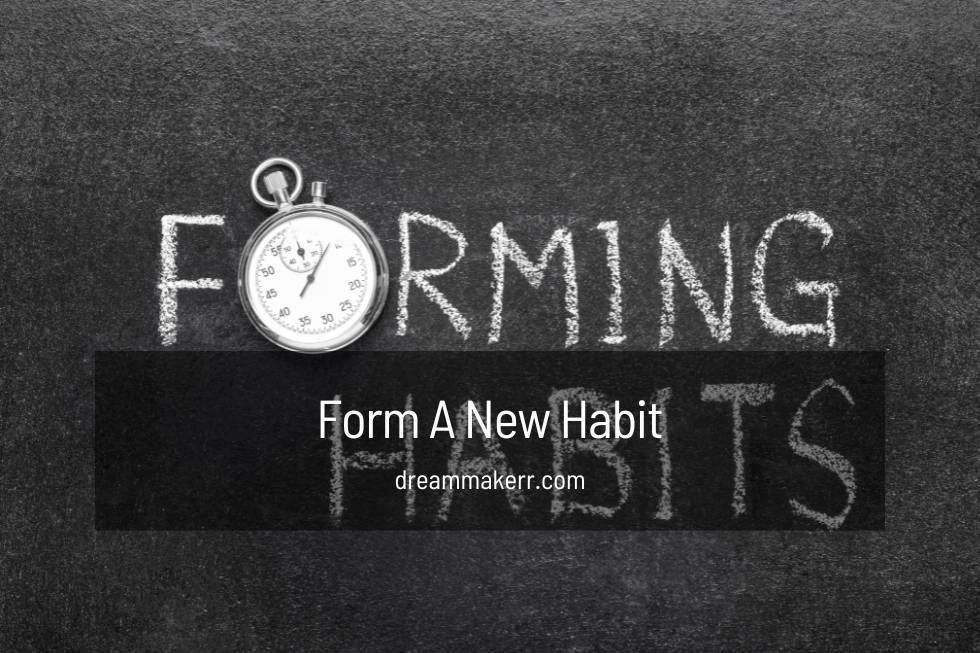On this page

How Long Does it Take to Form a New Habit?
In the 1950s plastic surgeon Maxwell Maltz noticed a trend among his patients prompting him to delve into the study of what later came to be recognized as ” attachment disorder.”
21 days is how long it took Dr. Maltz to get his patients used to seeing their new faces after performing surgery, such as a nose job.
- Maxwell Maltz also discovered that people who had an arm or a leg amputated would experience a phantom limb for roughly 21 days before acclimating to the change.
- When he noticed feeling uneasy in circumstances he made a choice to reflect on his actions and embrace behaviors. Through this process he found that it typically took him 21 days to establish a routine.
- Maltz chronicled these events and noted, “These, as well as many other commonly seen occurrences, suggest that it takes at least 21 days for an old mental image to dissolve and a new one to jell.”
In 1960, Maltz released a book titled Psycho-Cybernetics (audio), in which he included that remark and additional ideas on behavior change.
The book became a big commercial success, selling over 30 million copies.
And that’s when the habit problem started
Since then Maltz’s concepts have greatly influenced well known self help figures, like Zig Ziglar, Brian Tracy and Tony Robbins.
Over time as people passed on his story like a game of “Telephone ” it became popular to simplify it to “It takes 21 days to form a habit.”
- This led to the belief in society that establishing a habit takes 21 days (or sometimes 30 days or another mystical number).
- It’s surprising how readily people accept these timelines as data.
- The dangerous lesson here is that when something is repeated many times by people, others start believing it too.
- The myth of the “21 Days” perfectly demonstrates how ideas can quickly spread.
- It’s easily understandable.
- The time frame is short enough to be motivating long enough to seem achievable.
- Who wouldn’t be excited about improving their life in three weeks?
However, the problem lies in the fact that Maxwell Maltz was simply recording his observations rather than stating the truth.
Finally, he clarified that this represented the time needed to embrace change.
So, what’s the honest answer? How long does it take to establish a new habit? How long does it take to break a detrimental one? Is there any science behind this? And, for you and me, what does all of this signify?
How Long it Takes to Build a New Habit
Dr. Phillipa Lally, a psychologist, at University College London has spent years conducting research in the field of health psychology. In a study published in the European Journal of Social Psychology Lally and her research team delved into the question of how it takes for a habit to form. Over a span of 12 weeks they closely observed the behaviors of 96 individuals.
Each participant chose a routine to integrate into their lives over the 12 week period and provided regular updates on their progress while reflecting on how easy or challenging it was to stick to their chosen habit.
Some individuals opted for habits like bringing a water bottle with them at lunchtime while others took on demanding goals such as fitting in a 15 minute jog before dinner.
At the end of the study period researchers analyzed the data to determine how quickly participants progressed from adopting a habit, to performing it
The answer?
According to Lally’s research, it will generally take more than two months for a new behavior to become automatic. Depending on the behavior, person, and circumstances, it might take anywhere from 18 days to 254 days for people to form a new habit.
It took individuals anywhere from 18 days, to 254 days to establish a routine, in Lallys study.
To put it another way, if you want your expectations to be correct, the fact is that it might take anything from two months to eight months to instill a new habit in your life — not 21 days.
Surprisingly, the researchers discovered that “losing one opportunity to do the behavior did not significantly affect the habit formation process.” In other words, it doesn’t matter if you make mistakes now and then. Developing better habits is not an all-or-nothing proposition.
Finding Inspiration in the Long Road
Let’s talk about three reasons why this study is encouraging before getting discouraged.
To begin, don’t be hard on yourself if you attempt something for a few weeks and it doesn’t become a habit. It’s not supposed to happen that fast! There is no need to condemn yourself if you can’t master a behavior in 21 days or less. Learn to appreciate your 10 Years of Silence. Focus on doing your reps rather than how long it will take you to get there.
Second, you are not required to be flawless
Making a mistake once or twice doesn’t really impact your long term actions significantly. That’s why it’s important to approach failure, with a mindset allowing yourself to make mistakes and finding ways to get back on track quickly.
Additionally taking a view of things can help us understand that habits are a journey, not a one time event. The idea of “21 Days” might make us think we can just do something. It’ll be done. Habits don’t work like that. It’s about embracing the process and committing to the system.
Understanding that you won’t have all the answers until you try options can help reduce your worries.
Breaking down this process can also help you manage your expectations better and focus on making improvements instead of feeling like everything needs to be perfect right away.
Where to Go From Here?
The length of time it takes to form a particular habit is ultimately unimportant. You have to put in the effort, whether it takes 50 days or 500 days, no matter what.
To reach Day 500, you must begin on Day 1. So put the number aside and concentrate on the task at hand.
Check out my membership, which will show you how to create excellent results by making minor adjustments in your habits.
How Do I Stay Motivated For This Long?
Making a mistake once or twice won’t really change how you behave on the run. That’s why it’s important to approach failure, like a scientist allowing yourself to make mistakes and figuring out ways to get back on track quickly.
Additionally, looking at habits as a journey rather than a destination can give us a perspective. The idea of achieving something in 21 days” might lead us to think, “I’ll do this and it will be done.”.
Habits don’t work that way. It’s about embracing the process and committing to the system.
Understanding that you won’t find the answer until you try options can help reduce your anxiety.
Breaking down this process can also help you manage your expectations better—focusing on making improvements rather than feeling like everything needs to be perfect all, at once.
Final Thoughts on How Long it Takes to Form a Habit
You may use this information to establish your success. It’s crucial to understand the process of habit formation and how long it takes to succeed.
There’s no need to be embarrassed about taking longer than three months to form a habit or even four or five months. What matters here is that you keep practicing your overall behavior and essential daily habits since they significantly impact developing a happy daily routine and ultimately achieving your objectives.
Indeed, you can’t create new behaviors if you don’t have a clear picture of what those would look like.
You’ll need to exercise great effort, keep track of your progress, and make necessary adjustments as required to succeed.
And remember: if you don’t get to day 254, it’s because you didn’t start at day 1.
The only first thing you can do is begin the process.

Petri Maatta is a mindset coach and neuroscience-focused author with 15 years of experience in personal transformation and success psychology. After seven years of business failures, he discovered the power of manifestation through a Fortune 500 mentor. Now, he shares neuroscience-backed strategies through DreamMaker membership, helping others transform their businesses and lives on their own terms.
Read My Story here.
Share This Story, Choose Your Platform!
You want to manifest a new car, but you’re wondering: Does this really work? Here’s
Many smart individuals are often linked with having a high IQ. However, according to emotional
According to online dating statistics over 90% of people believe in love at first sight,




